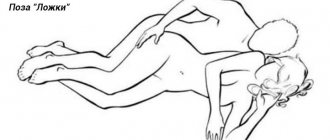As birth approaches, a pregnant woman inevitably has many questions: where to give birth, what to take with you to the maternity hospital and what to buy for the baby for the first time, whether it is worth giving birth under a contract or agreeing in advance with a specific doctor, how to breathe correctly during childbirth, how to understand that contractions have begun... It is undoubtedly important to think through the answers to them in advance. In addition, before giving birth, you should determine the sequence of your actions directly on “day X” so as not to get confused and panic. For example, decide in advance how you will get to the maternity hospital: call an ambulance or go by car. It would seem that an ambulance is the most obvious and reliable option. But many women associate a ride on it with anxiety, illness, and it is not clear which maternity hospital it will take them to. Maybe it's better to use a taxi service? Or can you just go there in your own car? Let's figure it out.
Which maternity hospital will they take you to if you call an ambulance?
The ambulance will take you to the maternity hospital to which you are assigned, or to the institution where you are registered. If you are in some remote area and the traffic situation is bad, then you will be taken to the nearest facility.
Many women prefer to go to a hospital for preservation in advance and stay there until the moment of delivery. This is especially true for first-time mothers. In the hospital, doctors will prepare the uterus and, while “pacing” the pregnancy, stimulate uterine contractions and induce labor. It is worth noting that calling them at home is strongly not recommended.
If you are at home and feel cramping attacks of pain in the lower abdomen, it is likely that a natural process has begun, which should take place under the attention of a doctor.
The question of when to call an ambulance during pregnancy is important, so you need to know the recommendations about the time of travel to the hospital during childbirth.
Pregnancy is a happy time for a woman, where she prepares with special impatience for the upcoming birth. In the later stages, the expectant mother may be concerned about a very important question: how to understand that labor is beginning and when to call an ambulance to the maternity hospital during contractions.
If the amniotic fluid breaks first
If your water breaks before or at the very beginning of labor, it is recommended to immediately go to the maternity hospital. By the end of pregnancy, the volume of water is about 1.5-2 liters. It is considered normal for the waters to break at the end of the first stage of labor, when the cervix begins to dilate.
The water may leak a little (you will notice this on the underwear) or pour out immediately, this is a signal that the membranes are broken and it is advisable for the baby to be born in the next 12 hours.
If possible, it is advisable to show the doctor the diaper or sheet where the water has spilled, or at least evaluate their color yourself. Waters without blood and transparent are considered good.
Most often, after the water has broken out, normal labor begins, and the birth proceeds safely.
What are contractions and how do they start?
Contractions are a painful contraction of the uterus, for the subsequent expulsion of the fetus from the birth canal. It is necessary to distinguish between false contractions (occur periodically and do not end with childbirth), as well as real ones. In the latter case, the pain is wavy in nature, starting from a small area and gradually spreading wider. Later, the pain syndrome subsides until the next “wave”. If time permits, before calling an ambulance, you can take a shower and be with loved ones. At the same time, do not forget about these recommendations.
Rendering is not required. It should be understood that in the absence of reasons, this process is natural, which you just need to experience.
While being preserved, during many births there is a school for expectant mothers. There, pregnant women are told about how to care for a child and important issues are discussed, including...
Asthmatic attack during pregnancy
If you have bronchial asthma, pregnancy is not contraindicated, but it can provoke attacks of suffocation that occur against the background of stress, hormonal changes, or unauthorized withdrawal of medications for fear of harming the fetus. Sometimes in women with allergies, asthma occurs for the first time during pregnancy, and its symptoms include wheezing noisy breathing, shortness of breath, paroxysmal cough with wheezing and palpitations. Before the doctors arrive, if asthma first appeared during pregnancy, you need to unfasten all collars, remove tight clothes, facilitating the flow of air. It is important to lay the expectant mother down with her head raised, or sit down with emphasis on her hands. To relieve the spasm before the doctors arrive, you need to place your feet and hands in hot water, apply mustard plasters to your calves, or give them hot tea.
When should you call an ambulance urgently?
For every pregnant woman, the welfare of the child is a priority. With a normal pregnancy and the absence of pathologies, the question of when to call an ambulance during childbirth is resolved. But it is worth noting several reasons as a result of which it is necessary to call an ambulance and go to the maternity hospital immediately:
- contractions began at less than 37 weeks;
- the amniotic fluid has receded even in the absence of labor, and it is worth noting the time and its appearance (cloudy, clear or green);
- there is bleeding from the vagina;
- the interval between contractions is less than 7 minutes, and their duration is more than 1 minute;
- multiple pregnancy;
- there is a scar on the uterus from the CS;
- contractions are painful, the uterus is in constant tone without relaxation;
- there is increased blood pressure;
- the child actively moves and causes pain to the pregnant woman;
- A woman has a second pregnancy (second birth, etc.);
- impurities of blood are observed in leaking amniotic fluid.
Pregnancy is an undoubted reason to know about what and when. Any alarming changes in the body of a pregnant woman should not go unnoticed by the doctor.
As the birth approaches, a pregnant woman inevitably has many questions: where to give birth, and what to buy for the baby for the first time, how to breathe correctly during childbirth,... It is undoubtedly important to think through the answers to them in advance. In addition, before giving birth, you should determine the sequence of your actions directly on “day X” so as not to get confused and panic. For example, decide in advance how you will get to the maternity hospital: call an ambulance or go by car. It would seem that an ambulance is the most obvious and reliable option. But many women associate a ride on it with anxiety, illness, and it is not clear which maternity hospital it will take them to. Maybe it's better to use a taxi service? Or can you just go there in your own car? Let's figure it out.
Beginning of labor
When the pregnancy proceeds without complications, the woman is advised to wait for labor to begin at home. If there is an indication to go to the maternity hospital in advance, then a referral is issued approximately 1-2 weeks before the PDR.
Once you feel the first contractions, start timing the time between contractions. If these are not false contractions, then the rest periods between contractions will gradually decrease. At first, contractions can last 5-10 seconds with intervals of up to half an hour. Regular contractions lasting 20-30 seconds at intervals of 15-20 minutes are a signal that it’s time to go to the maternity hospital. The latent period of the first phase of labor has begun, which lasts 4-6 hours.
While you are at home, pack your bags for the maternity hospital (if you haven’t already), take a shower, trim your nails, it is advisable to wipe off the nail polish, it is acceptable to leave it colorless, shave your pubic area. It is also advisable not to load your stomach with heavy food.
Childbirth is a slow process. The average duration of labor for a first-time woman is from 12 to 20 hours! In multiparous women, labor lasts from 6 to 12 hours. Rapid labor lasts 3-4 hours.
If the interval between contractions is 7 minutes or less, it means that the active phase of the first stage of labor has begun, the cervix is effaced and ready to dilate. If you are still at home, you should hurry to the maternity hospital. It is acceptable to wait until this interval at home if you live near the maternity hospital.
How to get to the maternity hospital?
There are not many options for getting to the maternity hospital. Probably everyone understands that public transport (metro, bus, tram, trolleybus) is not an option in this situation. What remains?
- Walk to the maternity hospital
. This way to get to the maternity hospital is ideal for those who live within a 10-15 minute walk from it. Movement eases the condition of a woman experiencing contractions, distracts and calms her. But you need to go accompanied - for example, with your husband or mother. - Call an ambulance
. Call 03 (or 103 for mobile devices) to inform that a woman in labor needs an ambulance. This will speed up the arrival of doctors. If necessary, they will help the woman down or even use a stretcher. An undeniable advantage of an ambulance is its speed of movement - all cars give way to it. In addition, with the rapid development of labor, doctors will be able to deliver babies, unlike a husband or a taxi driver. However, the ambulance, most likely, will not carry anyone except the woman in labor (this is prohibited), and the accompanying persons, if there are any, will have to get to the maternity hospital on their own. And the choice of maternity hospital remains with the ambulance attendants, and not with the woman in labor - although, as practice shows, different options are possible. - Drive your own car
. A personal car provides a familiar environment without hospital paraphernalia. Naturally, a woman giving birth should under no circumstances be driving – this puts both mother and baby at risk. The woman in labor should sit in the back seat in a reclining position. As for the attitude of maternity hospital workers towards those who arrived on their own, everything is individual. But the maternity hospital is obliged to admit a woman in labor. - Call a taxi
. In this case, you get almost the same comfort as when traveling in your own car. In addition, taxi drivers usually know the city well and know the detour options in case of traffic jams.
First aid for renal colic
Some women become pregnant due to urolithiasis. During pregnancy, attacks of renal colic may occur, associated with impaired urodynamics and stone retention in the ureters during the growth of the uterus against the background of compression of the urinary tract. In this case, severe pain of a paroxysmal nature occurs, associated with the expansion of the ureters or renal pelvis. The reason to call an ambulance is acute cramping pain with fever and severe malaise, which lasts from several minutes to several hours.
You also need emergency help if you experience lower back pain, blood in the urine, fever, or cloudy urine. Often, urolithiasis during pregnancy is complicated by pyelonephritis, which may also require calling a medical team to provide emergency care and transfer to a hospital.
Before doctors arrive, if you have renal colic, you are prohibited from taking food and liquids, but if the pain becomes unbearable, you can take Papaverine or No-shpa, Eufillin for relief; they will relieve spasm of the ureters, relieving the pain a little. All other medications will be prescribed only in the hospital, where the woman will be immediately taken by an ambulance that arrives on call.
Which maternity hospital will they take you to by ambulance?
Theoretically, a birth certificate gives a woman the right to choose health care institutions where pregnancy, childbirth and clinical observation of the child will take place in the first year of his life. However, reality makes adjustments to this wonderful theory. As for maternity hospitals, the lack of space or sanitary processing (the so-called “wash”) gives the medical institution the right to refuse admission to a woman.
The ambulance takes the woman in labor to where she received the order from the dispatch center. If the maternity hospital that the woman herself wants to go to is overcrowded and closed, the dispatcher will not send an ambulance. This means that no bribes (on forums they often advise pregnant women to give doctors “money”) will help them get there. The movement of all ambulances is monitored, and doctors will not risk their work.
Women are usually taken to the maternity hospital corresponding to their registration. The exception is the option of having a contract between the pregnant woman and a specific maternity hospital or having a visa for the head physician / deputy head physician on an exchange card. It is possible that the doctors will meet the pregnant woman halfway and take her to the maternity hospital of her choice - but again, only if they receive an order from the dispatcher. Some women, in response to their request for a specific maternity hospital, hear the phrase: “An ambulance is not a taxi for you.”
If doctors see that the baby is about to be born, the woman in labor is taken to the nearest maternity hospital, notifying the dispatcher on the way.
Packing bags for the maternity hospital
Before the start of labor, it is advisable to already pack bags: for childbirth (she will be very small), for the postpartum period, and a bag with things for discharge.
The only items you will need in the maternity ward are washable slippers. Some maternity hospitals allow you to take a bottle of water and a mobile phone with you.
For the postpartum period, pack a separate bag; your relatives will bring it to you. Here is a sample list that may be useful to you:
- sanitary pads (postpartum or choose the largest);
- panties (best disposable, 5-7 pieces);
- disposable diapers
- hygiene items (soap, toothpaste, brush, comb, shampoo, wet toilet paper, etc.);
- mobile phone and charger
- packaging of disposable diapers for newborns (at the rate of 7 pieces per day)
- baby liquid soap, wet wipes for newborns (if the child will be with you)
- cream for cracked nipples
- two nursing bras;
- 1.5 l bottle of water
- cup, spoon, knife, etc.
You can check the list of necessary things in the maternity hospital.
It will also be useful to interview friends who recently gave birth in this maternity hospital and adjust your list. For checkout, prepare a separate bag with things for the baby (from diapers to hats and warm overalls or other clothes for the season). It is also advisable for the mother to prepare clothes for discharge, from underwear to shoes. Then your relatives will not have to rush around the house looking for things to check out.
Paid ambulance
Paid ambulance / Ambulance for pregnant women to the maternity hospital
We have been taking care of the health of mothers and babies for 20 years. All doctors have at least 7 years of experience and undergo advanced training every 2 years. We have no time standards or geographic restrictions. In 4 minutes we send a paid ambulance team for pregnant women to any district of Moscow and the Moscow region. We will be there where you need us, we will spend with you as long as necessary. All machines are technologically advanced, we carry out diagnostics on site, continue to monitor the condition in the ambulance, and hand over the pregnant mother to the maternity hospital.
We quickly but carefully deliver the mother by ambulance to the maternity hospital, we avoid traffic jams with the flashing lights on. We have no interest in stretching the time - the price of the call is fixed and does not depend on travel time. The situation center coordinates the route via satellite. The only performance indicator for our emergency medical teams is the health of mother and child. 3 out of 10 young parents come to us by recommendation. The quality department selectively calls 20% of all patients a week after the call. 2% of randomly selected patients are called personally by the head physician.
Exacerbation of chronic diseases and other acute conditions
Bronchial asthma
This disease is a sudden attack of suffocation due to complete or partial blockage of the bronchi, accompanied by wheezing, shortness of breath, increased heart rate, cough, and a feeling of fear. If you do not have inhaled medications in your home that relieve bronchospasm prescribed by your doctor, then before the ambulance arrives you should:
- unbutton your clothes on your chest;
- ensure air flow (you can open a window in the room);
- sit on a sofa or bed with a palm rest;
- dip your hands in hot water or drink hot lingonberry tea.
Quincke's edema
This type of allergy occurs suddenly as a reaction to taking certain medications, an insect bite, eating certain foods, etc. Swelling can occur in the tissues of the cheeks, eyelids, lips, mouth and then spread to the mucous membrane of the larynx - in this case, a woman may fall into who will die from insufficient oxygen supply. In addition, the process may be accompanied by vomiting, abdominal pain, diarrhea and nausea.
In this situation you should:
- immediately avoid contact with the allergen;
- call an ambulance, during the call specifying which antihistamine can be given to the woman;
- open the window;
- unbutton clothes in the chest area;
- apply a cold compress to the area of swelling;
- give the expectant mother several tablets of activated carbon or enterosgel, make her drink a lot of liquid.
Renal colic
These are sharp, constant pains lasting up to 12 hours, occurring against the background of urolithiasis and chronic pyelonephritis. As a rule, they are localized in the lumbar and hypochondrium areas.
In this case it is necessary:
- call an ambulance;
- take an antispasmodic (no-spa, aminophylline, papaverine) and 4-5 drops of the drug “Cystenal”.
It is forbidden to drink water during pain.
The main thing is to remember that in such cases, slowness or excessive indecisiveness can lead to serious problems and even cause pregnancy loss. Therefore, if you suddenly feel very bad, call “03” or at least dial your doctor’s number. Your health and the health of your baby is in your hands, and let modesty and shyness be reserved for other, not so important, situations.
Expecting a child is a wonderful state that makes a woman happy. In order to think only about good things for the entire nine months, you should take care of qualified and prompt transportation to the maternity hospital or hospital. Every expectant mother should have an emergency telephone number for pregnant women in Moscow and the Moscow region. Fast transportation will help avoid serious health problems for both the woman and the child. The commercial ambulance for pregnant women of the Doctor 03 medical service is safety, professionalism and maximum comfort during paid hospitalization.
Answers to the main questions
- How does a private ambulance for pregnant women differ from the public one?
Our private ambulance specialists do not use time restrictions - doctors spend all the necessary time with the patient to provide high-quality and qualified medical care. We can deliver the patient not only to the nearest hospital or maternity hospital (as is often done by the state ambulance), but to any medical institution that the patient himself has chosen. Our paid ambulance also has connections with a large number of hospitals and hospitals that meet high quality standards.
If desired, our ambulance doctors for pregnant women will carefully and carefully deliver you to the maternity hospital that you have chosen in advance (attached by contract or personal agreement), no matter in what part of the city it is located. Ambulances are equipped with special signals and the right to enter the territory of all maternity hospitals in Moscow. Unlike patients who arrived on their own or by taxi, emergency patients are admitted to the maternity hospital outside the general queue.
- bleeding of varying intensity or the appearance of “liquid” discharge from the vagina; - abdominal pain of various localization and nature; - headache, increased blood pressure; — visual impairment: blurriness and vagueness of objects, “flickering of spots” before the eyes; - severe sudden swelling of the legs, arms, face or an increase in existing swelling; - vomiting, nausea, fever.
If you experience any symptoms of a threatened miscarriage, you should immediately consult a doctor. If bleeding occurs at any stage of pregnancy, it is recommended to call an ambulance.
Most often, treatment for the threat of interruption is carried out in a hospital. Only if the pain in the lower abdomen is of low intensity, there is no bloody or spotting discharge, you can be treated at home. However, if you cannot get rid of the threat at home, hospitalization is required.
Local hypertonicity, detected only by ultrasound, when nothing bothers the woman, does not require hospitalization. This symptom often appears because a woman has been waiting in line for an ultrasound for a long time.
If nagging pain in the lower abdomen appears after physical activity, you can take the No-shpa tablet on your own, or you can put a suppository with Papaverine, but if this situation repeats, you need to consult a doctor or call an ambulance.
If there is a threat of miscarriage, it is important to be at rest as much as possible, lie down more, and get enough rest. Physical activity should be avoided, including homework. Also, you cannot have sexual intercourse. Rest and proper routine are 80% of success. That is why the threat of interruption is most often treated in a hospital.
Maternity hospital No. 15 - Sharikopodshipnikovskaya st., 3, (metro station Proletarskaya) tel. 674-42-87 (premature birth) Maternity hospital No. 6 - 2nd Miusskaya, 10/1, (metro station Belorusskaya) tel. 8-499-978-51-64 (IVF, recurrent miscarriage) Maternity hospital at City Clinical Hospital No. 8 - 4th Vyatsky Lane, 39 tel. 213-43-79 (premature birth) Maternity hospital at City Clinical Hospital No. 29 - Hospital Square, 2, (metro station Baumanskaya) tel. 952-87-11 (kidney disease, neurodermatitis)
Surgical pathologies
Situations in which a person may need emergency medical intervention can arise at any time and in any place. During pregnancy, the risk of such problems is slightly higher than during any other pregnancy.
In order not to harm the child and his mother, you need to seek medical help as soon as possible and try to remain calm.
“Acute abdomen” is a collective term that unites a whole group of various diseases and pathologies of internal organs that arise in the abdominal cavity. Such conditions develop very quickly and for the patient to recover, she must be immediately taken to a surgical hospital for surgical intervention.
Symptoms of such surgical pathologies are severe cutting or dull pain in the abdominal cavity, their intensity increases over time, in addition, signs of disruption of the digestive tract appear - nausea, vomiting, restriction of muscle mobility of the anterior abdominal wall, stool retention may occur. In addition to the symptoms described above, the general state of health deteriorates greatly - the patient feels severe weakness, dizziness, her skin turns pale, she sweats profusely and her blood pressure drops.
Often, signs of inflammatory changes in the abdominal cavity may appear - increased body temperature, increased breathing and heart rate.
The development of such surgical pathology can be caused by a variety of diseases, both related to the female reproductive system and related to the pathology of internal organs:
1. Ectopic pregnancy - occurs when a fertilized egg is not implanted correctly - not in the uterine cavity, but in the abdominal cavity or fallopian tube. Such an egg may develop for some time, but then its development stops and a spontaneous miscarriage occurs. This pathology becomes the most common cause of the development of an “acute abdomen” in pregnant women. When pregnancy develops outside the uterine cavity, the pregnant woman feels severe pain in the lower half of the abdomen, there is no regular menstrual flow, and vaginal discharge mixed with blood appears. With a developing ectopic pregnancy, complaints may be minimal - mild pain and spotting. An interrupted ectopic pregnancy causes the patient to be admitted to the hospital. This may cause rupture of the fallopian tube or other tissues. This provokes severe pain - a “dagger” pain in the lower abdomen occurs, and blood appears from the genitals. The woman feels a sharp deterioration in her health, arising from the symptoms of internal bleeding - severe weakness, possible fainting, drop in blood pressure, pain shock.
2. Uterine rupture - this pathology occurs after surgery on the uterus - cesarean section, removal of tumors, excision of the uterine angle after removal of an ectopic pregnancy. Symptoms of this pathology are a change in the shape and contours of the abdomen, severe pain in a certain place; upon palpation, you can feel the edges of the tear and scar changes.
3. Torsion of an ovarian cyst - the occurrence of such a complication is possible in the presence of formations in the ovaries. A cyst is a benign formation in the ovary, which is a cavity with fluid; if the cyst is attached to the ovary with the help of a “leg,” then there is a risk of torsion of the cyst, which disrupts the blood supply, compresses the vessels and begins tissue death. This causes severe pain, which can be provoked by any physical activity, sexual intercourse or nervous strain. Scanty vaginal discharge also appears, and other symptoms of intoxication may be present.
4. Impaired blood supply to the fibroid node - if a pregnant woman is diagnosed with uterine fibroids, as the fetus grows, compression of the vessels feeding this formation is possible, this leads to disruption of the blood supply to the fibroids and the occurrence of constant dull pain in the area of the uterine fibroids.
5. Acute appendicitis - can occur at any time, up to 75% of cases of acute appendicitis in women expecting a child occur in the first months. Clinically, the disease manifests itself with a standard set of symptoms - pain in the epigastrium or in the lower third of the right abdomen. Upon examination, you can notice strong tension in the abdominal muscles. If help was not provided on time, nausea, vomiting, and a rise in body temperature occur.
6. Acute cholecystitis is an inflammatory disease of the gallbladder; it often develops in pregnant women; about 10% of all pregnant women suffer from disorders of the gallbladder, but most often the disease does not require medical attention. In case of exacerbation, the patient suffers from severe pain on the right side, radiating to the scapula and right shoulder, indomitable vomiting, which does not bring relief and deterioration of the patient’s general condition. In such cases, it is also necessary to contact emergency specialists.
7. Acute pancreatitis - occurs when the pancreas becomes inflamed. The main symptom of the disease is acute, sudden girdling pain or pain in the upper abdomen, severe nausea and vomiting, and a sharp rise in body temperature.
8. Perforation of a stomach or duodenal ulcer - if before pregnancy a woman was diagnosed with inflammation or ulcerative damage to the walls of the stomach or intestines, there is a danger of bleeding from damaged vessels or the formation of a hole in the wall of the organ - perforation. With this pathology, very severe stabbing pain, fainting, weakness occurs, and vomiting of blood is possible.
Before the ambulance arrives, in all the cases described above, it is necessary to ensure complete rest for the pregnant woman, put her on the bed and not give any painkillers and under no circumstances eat or drink until the doctors arrive. It is allowed to take antispasmodics - no-shpa, metacin - 1-2 tablets. You should not try to give an enema or flush the patient’s stomach yourself. It is also not recommended to take painkillers or laxatives - this can greatly distort the clinical picture of the disease and complicate its further diagnosis.
How to get to the maternity hospital?
There are not many options for getting to the maternity hospital. Probably everyone understands that public transport (metro, bus, tram, trolleybus) is not an option in this situation. What remains?
- Walk to the maternity hospital . This way to get to the maternity hospital is ideal for those who live within a 10-15 minute walk from it. Movement eases the condition of a woman experiencing contractions, distracts and calms her. But you need to go accompanied - for example, with your husband or mother.
- Call an ambulance . Call 03 (or 103 for mobile devices) to inform that a woman in labor needs an ambulance. This will speed up the arrival of doctors. If necessary, they will help the woman down or even use a stretcher. An undeniable advantage of an ambulance is its speed of movement - all cars give way to it. In addition, with the rapid development of labor, doctors will be able to deliver babies, unlike a husband or a taxi driver. However, the ambulance, most likely, will not carry anyone except the woman in labor (this is prohibited), and the accompanying persons, if there are any, will have to get to the maternity hospital on their own. And the choice of maternity hospital remains with the ambulance attendants, and not with the woman in labor - although, as practice shows, different options are possible.
- Drive your own car . A personal car provides a familiar environment without hospital paraphernalia. Naturally, a woman giving birth should under no circumstances be driving – this puts both mother and baby at risk. The woman in labor should sit in the back seat in a reclining position. As for the attitude of maternity hospital workers towards those who arrived on their own, everything is individual. But the maternity hospital is obliged to admit a woman in labor.
- Call a taxi . In this case, you get almost the same comfort as when traveling in your own car. In addition, taxi drivers usually know the city well and know the detour options in case of traffic jams.
Which maternity hospital will they take you to by ambulance?
Theoretically, a birth certificate gives a woman the right to choose health care institutions where pregnancy, childbirth and clinical observation of the child will take place in the first year of his life. However, reality makes adjustments to this wonderful theory. As for maternity hospitals, the lack of space or sanitary processing (the so-called “wash”) gives the medical institution the right to refuse admission to a woman.
The ambulance takes the woman in labor to where she received the order from the dispatch center. If the maternity hospital that the woman herself wants to go to is overcrowded and closed, the dispatcher will not send an ambulance. This means that no bribes (on forums they often advise pregnant women to give doctors “money”) will help them get there. The movement of all ambulances is monitored, and doctors will not risk their work.
Women are usually taken to the maternity hospital corresponding to their registration. The exception is the option of having a contract between the pregnant woman and a specific maternity hospital or having a visa for the head physician / deputy head physician on an exchange card. It is possible that the doctors will meet the pregnant woman halfway and take her to the maternity hospital of her choice - but again, only if they receive an order from the dispatcher. Some women, in response to their request for a specific maternity hospital, hear the phrase: “An ambulance is not a taxi for you.”
If doctors see that the baby is about to be born, the woman in labor is taken to the nearest maternity hospital, notifying the dispatcher on the way.
Childbirth and emergency care.
31.03.2011 11263
...or “Why was I not taken to where I wanted?” (St. Petersburg).
..or “Why was I taken not where I wanted”? (St. Petersburg). A long time ago, when personal cars were the privilege of some lucky people, the tradition was born of calling an ambulance to deliver a woman in labor to the maternity hospital. Nowadays, a much larger number of people have their own car, but many expectant mothers still prefer to go to childbirth accompanied by ambulance staff. In this article I want to talk about the various nuances of a pregnant woman’s interaction with the EMS (emergency medical care) service, explain the reasons why we often cannot satisfy the wishes of women in labor and their relatives, talk about our capabilities and what we cannot do under no circumstances.
When to call an ambulance Any person who is seriously ill or injured has the right to call an ambulance. Whether a healthy pregnant woman needs medical supervision during a trip to the maternity hospital is a controversial issue. However, she has the right to do so. By dialing number 03, you will talk to a dispatcher who will accept your call at any time of the day, regardless of your age, social status and city registration. In St. Petersburg, there are also emergency departments at district clinics (formerly called emergency departments), they have seven-digit telephone numbers; pregnant women and women in labor are not their patients; they do not accept obstetric calls, recommending calling 03 back. In addition to the onset of regular contractions, reasons for immediately calling an ambulance are:
- headache, double vision, fog or spots before the eyes;
- convulsions;
- bloody discharge from the genital tract - in any quantity and any shade: from brown to pink. The only variant of the norm is considered to be thin streaks of blood in the mucus plug, which comes off shortly before the day of birth.
- leakage or leakage of amniotic fluid
- constant or occasionally passing, aching pain in the lower back or lower abdomen, increased tone of the uterus, irregular contractions - if these phenomena continue for more than 6 hours. Normally, no longer than 6 hours, this is the natural preparation of the uterus for childbirth. But, if prolonged, such “training” can excessively worsen the baby’s blood supply and become beyond his adaptive capabilities.
In the described situations, with the exception of the last two, it is highly not recommended to go to the maternity hospital on your own. These are signs of serious pregnancy complications that require medical attention as soon as possible - even before you leave. Lie down and dial 03 - this is the optimal algorithm of action in such cases. Be sure to tell the EMS dispatcher what is happening to you, this will affect the choice of the team that will be sent to you. If everything is in order, you should go to the maternity hospital when the interval between regular contractions is 5-10 minutes. Obviously, the further and more difficult the road, the greater the amount of time needed. The second birth and subsequent ones often end much faster than the first, but the first ones can also turn out to be unexpectedly fleeting. You should also remember that any periodically occurring sensations (nausea, discomfort in the lower abdomen or back) may be your own perception of contractions. (“I felt a little sick, and then I gave birth,” one young mother was surprised.). Often, a 10-minute interval between contractions imperceptibly turns into 5 minutes, and 5 minutes into the birth of the baby's head. This may turn out to be a big surprise for all participants in the process. It's better to be safe than sorry. When determining the time to call an ambulance, you need to understand that in a big city, especially during the day, the time it takes for the team to arrive stretches out in the most unpredictable way. We move along the same streets as the entire metropolis. Unfortunately, there are no alternative (preferably air) routes, and separate lanes for route transport and special service vehicles recently created in some places have not radically solved the problem. According to the rules, the ambulance team must arrive 15 minutes after the call. But traffic jams can turn the movement of an emergency vehicle into the journey of a snail poisoned with sleeping pills. The popular opinion that ambulance workers, having received a call, spend half an hour finishing their coffee and finishing playing cards, is erroneous and unfair. At seven o'clock in the evening, a paramedic may well come to you, having eaten his last meal at home in the morning. He is not on a diet: he has not yet been able to return to the substation and have lunch due to the abundance of citizens concerned about their ill health.
How to call an ambulance? The ambulance dispatcher will be interested in: what happened (contractions started, water broke, etc.), your age and last name, where you are now (address), phone number for contact. If you doubt that what is happening to you is the beginning of labor, describe in your own words how you feel. No one assumes that a pregnant woman will be fluent in medical terminology, that she is expecting her tenth child and is perfectly aware of how her childbirth usually goes. You have every right to make mistakes. A trip to the maternity hospital to identify the cause of poor health will not bring harm, and it may well turn out to be very timely.
Important documents In the maternity hospital, you will also be asked to present your passport, medical insurance policy, SNILS (green pension card) and birth certificate. But the emergency doctor is only interested in your exchange card. The absence or “imperfection” of this document sharply narrows the range of maternity hospitals to which you can go and gives rise to a significant number of conflicts between women in labor and the emergency medical team.
Relationship problems: why we can’t do what we can’t Formally, a birth certificate gives a woman the right to choose in which maternity facility her child will be born. But there are nuances. Let's look at a few typical situations in which we fail to satisfy the wishes of a woman in labor.
1. Infections: don’t get sick and give birth wherever you want!
- During your observation at the antenatal clinic, you undergo many tests. The “most important” of them are tests for chronic viral hepatitis B and C (HBsAg, anti-HCV), AIDS (F-50), syphilis (RW). At 36 weeks of pregnancy they are taken for the last time, and the results are entered into the exchange card. If the indicated place in the card is empty, or there is no card at all, or the results are positive for at least one of the points indicated, we can take the woman in labor only to the 16th maternity hospital (54 Malaya Balkanskaya St.), 17th (formerly 15th, Vavilov St., 12) or (in some situations) to the maternity ward of the city infectious diseases hospital named after S.P. Botkin. (Mirgorodskaya st., 3). It happens that the doctor forgets to make the necessary note during a consultation. Unfortunately, ardent assurances “We honestly had everything in order!!” not accepted. Be careful, ask your doctor again if he has filled out everything accurately! If labor began before 36 weeks of pregnancy, previous test results are valid.
- If a woman has ARVI at the onset of labor, we can only take her to RD No. 16 or No. 17. In case of any other infectious disease, during quarantine at home (for example, an older child has chickenpox) or in contact with an infectious patient within the incubation period of his disease, the woman in labor will most likely receive a personal doctor, a midwife, and separate delivery and postpartum wards during childbirth - in an already the above-mentioned city infectious diseases hospital named after S.P. Botkin. Reviews are usually good.
2. The main goal is not to give birth in a car! For some reason, many women now strive to avoid going to the maternity hospital for as long as possible. Not wanting to spend an extra hour in a government institution, they stubbornly finish their household chores or perfect their appearance. Fans of this modern fashion actually intend to hold out not “until the last,” but “until the penultimate.” But their insidious physiology lets them down.
- The woman in labor lives in the Vyborg region. She really wants to go to RD No. 9 (Ordzhonikidze St., 49, Moskovsky district). It’s midday, a weekday, and the period between contractions is 3 minutes. Despite her full right to choose where to give birth to the child, it is unlikely that any of the EMS doctors will undertake to take her further than RD No. 17 (Vavilov St., no. 12). If we go, at her request, to RD No. 9, we will not have time to get there in time, and the birth will have to take place right in our car. Even the most fastidious lady, choosing between an affordable hospital and the prospect of seeing her newborn baby for the first time somewhere in a traffic jam on Liteiny Prospekt, should prefer “bird in hand.”
- The conditions of the task are the same, but the period between contractions is 6 minutes. We will try to make it to the distant but desired maternity hospital. However, be prepared for the fact that the situation – obstetric or road – may change along the way. Then we, leaving the original route, will try to quickly get to the nearest maternity facility. You will definitely be more comfortable and safer there than on a stretcher in an ambulance in the middle of our beautiful but crowded city.
- The woman in labor lives... it no longer matters in what area, what time of day it is or what maternity hospital seemed optimal to her. Because at the time of our arrival, she had already begun the period of pushing. It’s late to go to the maternity hospital, you’ll have to give birth at home: this is bad, but better than in a cramped car. When the baby is born and the placenta has passed, the mother and child will need to be taken to the 16th or 17th maternity hospital: only they accept unlucky women in labor who were unable to get to specialists in time.
3. “We’re closed!”
- There are two more reasons why the desired maternity hospital will be unattainable. Firstly, it may be overloaded and not accept new women in labor (“closed for import”). Secondly, every maternity hospital is periodically closed during the year due to planned sanitization. If you have a contract with an institution that is currently closed or have an oral agreement with a specific doctor, the problem is solved individually (by calling the emergency room or your doctor’s mobile phone).
Thus, the choice of a maternity hospital is the result of a joint discussion of possible options by the mother herself and her family with the emergency medical team. In this case, the obstetric situation is taken into account and the exchange card is analyzed.
If the woman’s wishes cannot be fulfilled or an attempt to do so involves an unreasonable risk, the ambulance officer will explain why in a particular case it will not be possible to exercise the legal rights given by the birth certificate.
Marya Maksimenko aka Gremlin (St. Petersburg)









